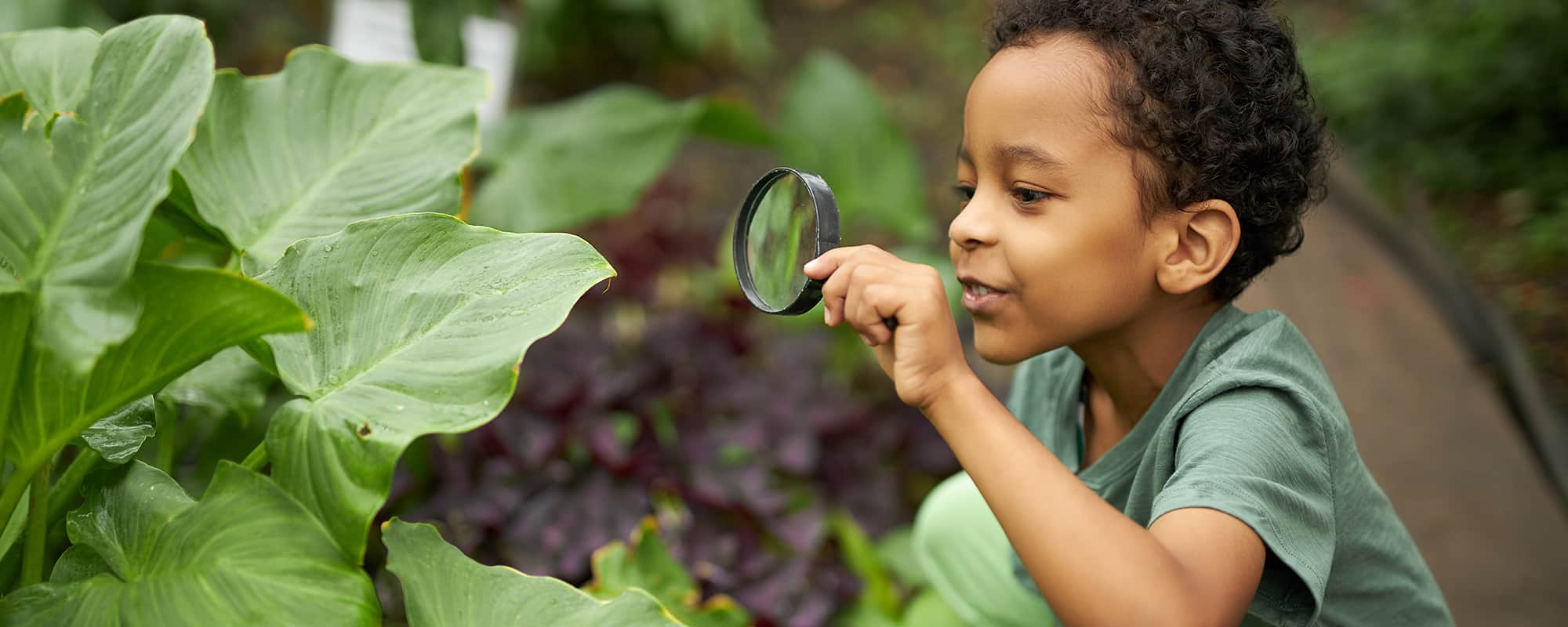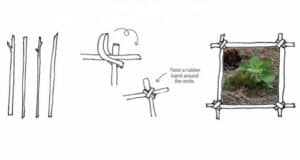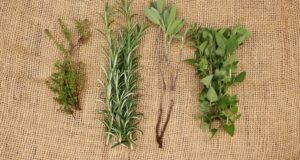The kitchen and garden are perfect places to learn as you create. Whether it’s getting crafty making leaf mandalas, measuring ingredients for a favourite recipe or analysing your soil for optimum garden growth, STEAM (science, technology, engineering, art and maths) is all around us.
We asked the team at the Stephanie Alexander Kitchen Garden Foundation for some of their favourite hands-on activities that make learning fun and incorporate STEAM.
Newspaper Planting Pots
Newspaper pots are an inexpensive and sustainable way to nurture seedlings. Just shape newspaper around a jar or tin, and tape or tie together. Plant the seeds or seedlings, pack together in a warm spot to grow, and when they are big enough to withstand the outside elements, plant directly into the garden. Growth and decomposition in one!
Who’s in Your Garden?
We share our outside spaces with many other creatures. Some bugs are highly beneficial and worth exploring. For a gentle insect hunt, create a square from four sticks in your garden, tie them with string and place them on the ground. Watch carefully and make observations of what moves through your ‘window’. This is also a great mindfulness exercise.
Leaf Rubbing
Making decorative leaf images on calico is a lovely observational and arty activity, especially on a rainy day. Choose leaves with great ridges and vein markings, and using either a clipboard, old garden table or smooth piece of ground, place the leaf under a piece of calico and gently hammer it with a mallet, so the leaf releases its moisture and colours onto the fabric. Then mount onto cards or picture frames.
Herb Posies
Beautiful and practical, herb posies are great in your kitchen or as a gift. Gather together a range of herbs and edible flowers, lay them out on your table and strip away the leaves from the bottom of the stems. Group them by type, consider the structure they will bring to your posey: rosemary, lemongrass or fennel might provide height in the middle, sunflowers, calendula or borage flowers will add splashes of colour, while softer herbs like sage, mint, lemon balm, thyme, lavender and dill may better suit the outer rings. You can also research the traditional meanings of herbs and create symbolic messages.
pH Soil Testing
A pH reading is an important first step in understanding your garden’s soil. Using a soil pH test kit, gather several samples from different parts of your garden (or neighbourhood), put them in different marked jars, make sure to use clean tools and wear gloves. Record the findings in a garden journal, along with date and weather conditions. Make further observations about any nutrient deficiencies, soil colour and whether plants are thriving or stunted.
Make a Mini-Greenhouse
Plants aren’t always strong enough to be sown directly into the garden. Create a mini-greenhouse from old berry or tomato punnets by using a pin to make holes in the bottom of the containers, filling three-quarters with seed raising mix, sowing the seeds, covering with soil and spraying lightly with water. Place your mini-greenhouse in a warm sunny position and spray regularly. Children can measure and chart the growth of their seedling week-by-week, until they are ready to be transplanted.
Pizza Portrait
Can you make a pizza that looks like your face using veggies? While making the pizza dough, talk about the purpose of all of the ingredients, especially how yeast works to make dough rise and why it needs to be kept warm. Extend that same scientific questioning to kombucha and other fermented foods like kimchi.
Veggie Weigh-in
Next time you’ve a bumper crop of zucchini or whatever else is growing heartily in the garden, turn it into a game of ‘guess how much’. Veggies come in all shapes and sizes, so predict which is the heaviest and ask why. Lift one and measure its weight, then lift the whole harvest – predict how much the total zucchini harvest will weigh based on the feel, compared to the weight of just one.








